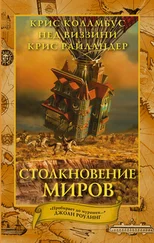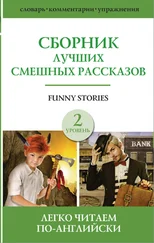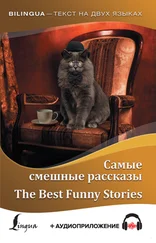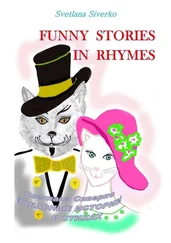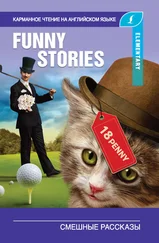“Shut up, Ronny.”
“Asian contagion.”
“Shut up.”
“Asian persuasion.”
Aaron yanked his controller out of the PlayStation.
“Suh-uhn!” Ronny scrambled for it.
“You want to go for a walk?” Aaron asked.
“Sure!” I got my jacket.
Aaron woke up Eight Ball jacket and Donna and got them out; he forced Ronny to leave too, over many protests. We all took the elevator down; Eight-Ball jacket and Ronny went uptown; Donna and two others slid into a cab; me and Aaron, instinctively, started toward the shimmering Brooklyn Bridge, which carved its way through the night about three blocks from his house.
“You want to walk across the bridge?” Aaron asked.
“Into Brooklyn?”
“Yeah. You can go home or we can take the subway back to my place.”
“When will it be light?”
“In three, four hours.”
“Let’s do it. I’ll walk home and get breakfast.”
“Cool.”
We walked in step. My feet weren’t cold at all. My head swam. I looked at bare trees and thought they were beautiful. The only way it could have been better was if it were snowing. Then I’d have flakes dripping down on me and I’d be able to catch them in my mouth. I wouldn’t be worried about Aaron seeing that.
“So, how do you feel?” I was like.
“About what?” he was like.
“You know,” I was like.
“Hold on a second.” Aaron spotted a Snapple bottle on the curb; it looked like it was filled with urine, which happens a lot in Manhattan—I don’t know why but homeless people fill up bottles with piss and then don’t even have the courtesy to throw them away—but then again it could be apple Snapple—did they have that? He lunged at it and sent it sailing across the street with a three-point kick; it landed on the opposite curb and shattered yellow under the streetlight.
“Rrnagh!” Aaron screamed. Then he looked around. “There aren’t any cops, right?”
I laughed. “No.” We came to the entrance to the bridge. “So seriously, what was it like?”
“She’s awesome. I mean, she likes everything—she really likes it. She likes. . . sex.”
“You had sex with her?”
“No, but I can tell. She likes everything else.”
“What’d you do?”
He told me.
“No way!” I pushed him as we climbed the bridge. Air from the frigid New York Harbor blew at us, and I put my hood up over my head and tightened the chewed cord. “What was it like?”
“It’s the craziest thing,” Aaron was like. “It feels just like the inside of your cheek.”
“No kidding?” I pulled one hand out of my pocket.
“Yeah.”
I stuck a finger in my mouth and pushed to the side. “That’s it?”
“Just like that,” Aaron said. He had his finger in his cheek too. “I’m serious. It’s hot.”
“Huh.”
We walked in silence with our fingers in our mouths.
“Did you hook up with anyone?” he asked.
“Nope. Julie wanted to, though.”
“Nice one. Did she slip you something?”
“What? No.”
“Because you crashed out pretty hard in the corner over there.”
“I was drinking my mom’s scotch and checking out your dad’s albums.”
“You’re a trip, Craig.”
“It’s cold out here.”
“Looks pretty cool, though.”
We weren’t even a tenth of the way up the bridge, but it did look cool. Behind us the walkway extended to City Hall, where the city had sprung for some spotlights to illuminate the dome of the building. It looked like a white pearl nestled between giants like the Woolworth building, which I learned in English class Ayn Rand had described as a “finger of God,” and that was about right—green and white at the top like the world’s most decorated mint. To our left were the other bridges of Manhattan, arrayed against each other like alternating sin and cos waves, carrying a smattering of late-night trucks whose tops trailed mist.
But to the right was the best view: New York Harbor. Mostly black. The Statue of Liberty was lit up, but it always struck me as a little cheesy, standing out there being all cute. The real action was on the sides: Manhattan had its no-nonsense downtown, where people made money, and on the other side was Brooklyn, sleepy and dark but with a trump card—the container cranes, lit up not for show or government pride but because there was work going on, even at this hour—ships unloading stuff that was famously unchecked for terrorist threats but somehow hadn’t blown us up yet. Brooklyn was a port. New York was a port. We got things done. I had gotten things done, too.
Between Brooklyn and Manhattan, miles across the water, we saw the final curtain of New York City—the Verrazano Narrows Bridge. It spanned the opening to the port, a steel-blue pair of upper lips greeting the blackness.
I could do anything anywhere, in all four directions.
“Craig?” Aaron was like.
“What’s up.”
“What’s up with you? You okay?”
“I’m happy,” I said.
“Why not?”
“No, I said I’m happy.”
“I know. Why not be?”
We came up to the first tower of the bridge, with a plaque proclaiming who had built it; I stopped to read. John Roebling. Aided by his wife, and then his son. He died during construction. But hey, the Brooklyn Bridge might be here for eight hundred years. I wanted to leave something like that behind. I didn’t know how I was going to do it, but I felt like I had taken the first steps.
“The really cool thing about Nia . . .” Aaron was saying, and he started to go into anatomical details, things about her that I didn’t need to hear; I tuned him out; I knew he was talking to himself. This was what he was happy about. I was happy about different stuff. I was happy because someday I’d be walking across this bridge looking at this city, owning some piece of it, being valuable here.
“Her butt is like—I think her butt shape is where they got the heart logo. . . .”
We came to the middle of the bridge. On either side of us the cars hissed past; red on the left and white on the right, the lanes encased by thin metal trussing that stretched out from the walkway.
I had a sudden urge to walk out over the trussing and lean over the water, to declare myself to the world. Once it came into my head, I couldn’t push it away.
“I don’t know if it was real —” Aaron was saying.
“I want to stand out over the water,” I told him.
“What?”
“Come with me. You want to do it?”
He stopped.
“Yeah,” he said. “Yeah, I see where you’re coming from.”
There were pathways built onto the top of the trussing, places for the bridge workers to get out to the cables and repair them. I clambered onto one on the harbor side, the side crowned by the Verrazano, and grabbed the handrails and balanced my feet one in front of the other on a piece of metal about four inches wide. Below me cabs and SUVs hummed by. In front of me was the black of the water and the black of the sky and the cold.
“You’re crazy,” Aaron said.
I took steps forward. It was easy. Stuff like this always is. The stuff adults tell you not to do is the easiest.
Below me there were three lanes of traffic; I cleared the first, got halfway over the second; then Aaron yelled:
“What are you going to do out there?!”
“I’m just going to think!” I called back.
“About what?”
I shook my head. I couldn’t explain. “It’ll only take a minute!”
Aaron turned back.
I moved past the second lane and kept my eyes on the horizon. I didn’t move my eyes from it for the last lane, shifting my hands in front of one another in a tight rhythm. I came to the edge of the bridge and was sort of surprised how there wasn’t any fence. There wasn’t anything to keep you from falling off, just your hands and your will. I gripped the bars at either side—they were freezing—and then sprung my hands open and spread my arms wide and felt the wind whip and tug at me as I leaned myself over the water like . . . well, like Christ, I guess.
Читать дальше
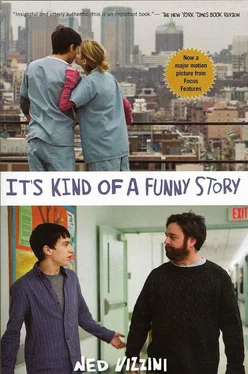
![Марк Твен - Смешные рассказы [The Funny Stories]](/books/29189/mark-tven-smeshnye-rasskazy-the-funny-stories-thumb.webp)



![Нед Виззини - Be More Chill [Расслабься] [litres]](/books/396819/ned-vizzini-be-more-chill-rasslabsya-litres-thumb.webp)

